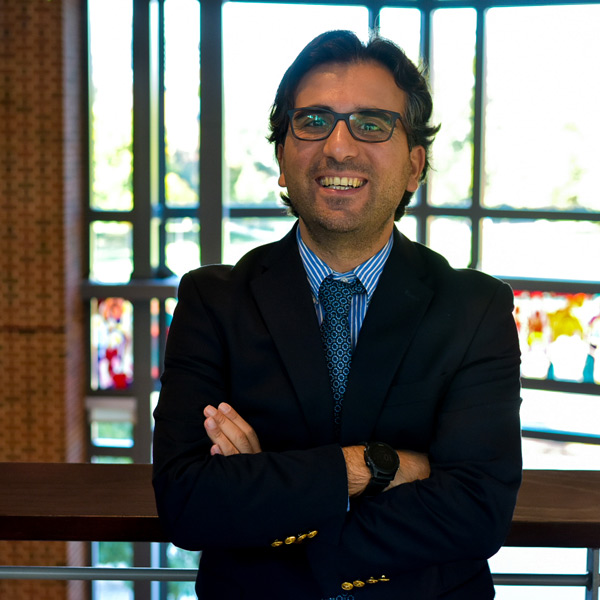Inspiring curiosity
My academic passion is to inspire such excitement and curiosity in students that they are motivated to continue learning about the course subject beyond the classroom.
“Consider: How do you legally exist?”
During my lectures on the nation-state, I have pulled out my passport or national identity card and asked students: Could I legally exist without these official documents? This exercise vividly illustrates the pervasive power of the nation-state, often in ways we might not fully realize.
I revisit this example in my lectures on refugees and migrants, linking it to the existential insecurities experienced by those without documentation to prove their belonging to a land. This also opens up discussions on how the ethical responsibilities of human communities are deeply territorialized and driven by the strict logic of sovereignty.
Why Naz?
I love both my colleagues and students, and I feel fortunate to be part of an incredibly supportive department and university.
My colleagues serve as role models for me in fostering positive synergies, facilitating learning, and nurturing relationships. One quality that means a lot to me is their genuine interest in one another’s well-being. At Naz, it is a tradition to stop by colleagues’ offices to check in and see how they are doing.
Similarly, what sets Naz students apart is their eagerness to engage with their instructors and professors beyond the classroom. I have had many students visit my office to request additional materials on course subjects or to ask further questions to deepen their understanding.
Your expertise?
I teach courses on political science and international relations, with particular interest in ideas, institutions, and human behavior.
I employ the Socratic method, fostering a dialogue with students through questions and answers, to encourage considering issues from new and unexplored perspectives. Critical thinking is central to my teaching philosophy. I believe critical thinking in my field requires not only understanding how political structures, systems, and processes function on local, national, and international levels, but also brainstorming about how they can be reformed for the greater good.
To promote this, I assign group projects where students analyze a current political issue, examine the positions and policies of key actors, and propose policy recommendations as neutral third parties.
I began teaching at Naz in 2024.
Favorite course?
I love teaching all my courses, but if I had to choose a favorite, it would be my upper-level International Relations class. In that class, we engage in in-depth conversations on international relations theories, which I truly enjoy.
Courses I teach:
- Introduction to Political Science
- Introduction to International and Global Studies
- International Relations
- Middle East Politics
- Refugees in International Relations
- Research Methods
How do you prepare students to be changemakers?
Equity and inclusion are fundamental to my teaching philosophy.
As a first-generation college student who grew up in Turkey, I understand what it’s like to step outside one’s cultural comfort zone and how intergenerational dynamics can impact an individual's success in higher education. To promote equity and inclusion in my courses, I design and teach in ways that allow students to engage with a diverse range of voices coming from various positions of race, ethnicity, religion, and gender. I create space for questioning and critiquing knowledge and authority. I leverage my intercultural competency by incorporating examples from Middle Eastern, Turkish, and European politics and sharing my personal experiences.
Additionally, to have a broader community impact with my equity and inclusion efforts, I teach at a weekend school for refugee children.
Media Expert
- Sefa Secen shared his expertise on Middle East politics and refugees in December 2024 on NPR's Here & Now Anywhere program, explaining developments in Syria and implications for U.S. troops there.
- His article, The History That Syria's New Leaders Will Need to Overcome, appeared in TIME Dec. 17, 2024.

Fun Fact
I played soccer semi-professionally during high school.
More
- Nazareth's international and global studies major
- Secen's website
- On X: @SefaSecen3
Faculty Spotlights
Wondering who else you can learn from — and who will support and challenge you? Check out more Faculty Spotlights.